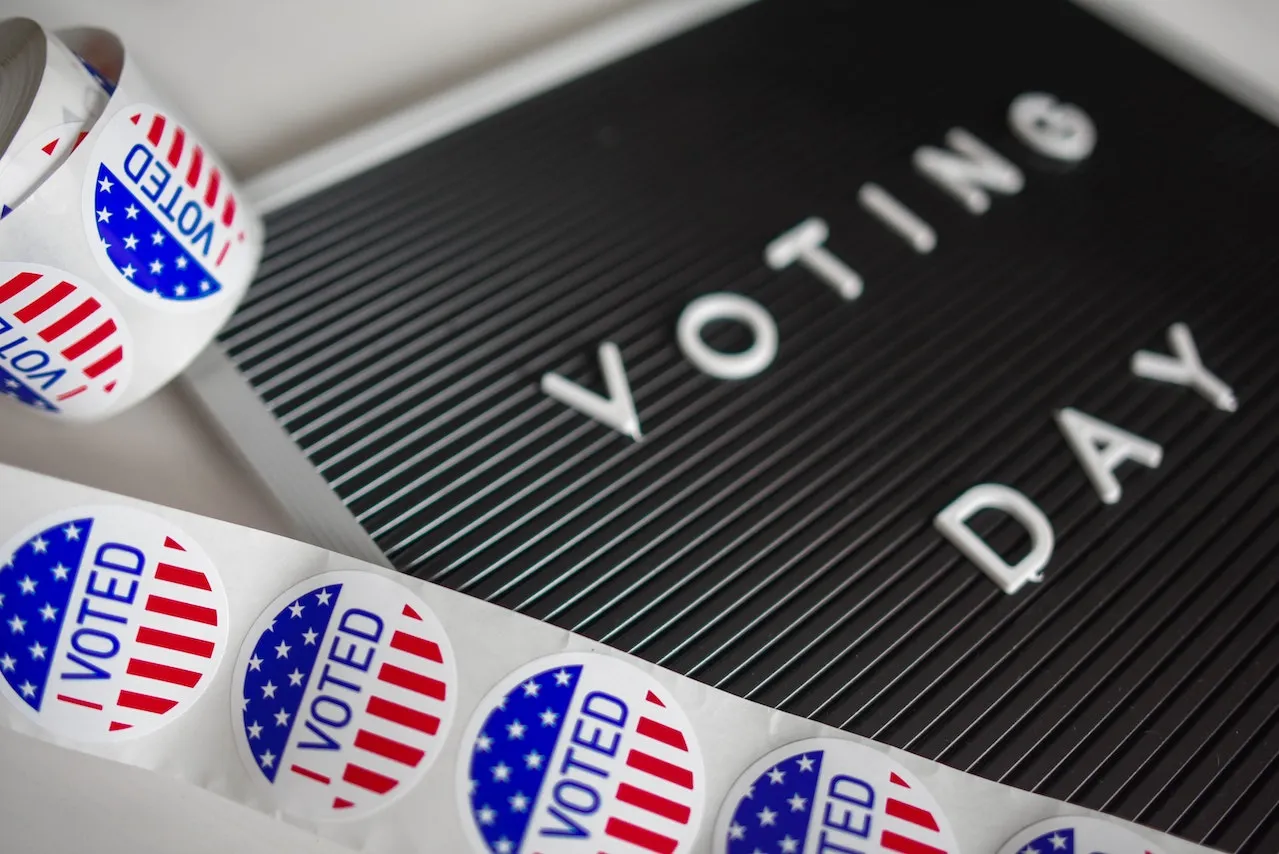Why Doesn’T California Require Id To Vote?
Voter identification laws are a hotly debated topic in the United States. Supporters argue such laws are necessary to prevent voter fraud, while opponents claim they disproportionately disenfranchise minorities, the elderly, and other vulnerable groups. If you’re short on time, here’s a quick answer to your question: California does not require ID to vote because its legislature believes doing so would disenfranchise legitimate voters. In this comprehensive article, we’ll explore the history of voter ID laws, why California has resisted them, and the arguments on both sides of this complex issue.
The History of Voter ID Laws in the U.S.
Voter ID laws have been a topic of debate and controversy in the United States for many years. These laws require individuals to present a valid form of identification when casting their vote in an election.
The argument for implementing voter ID laws is to prevent voter fraud and ensure the integrity of the electoral process. However, opponents argue that such laws can disproportionately affect certain groups of voters, particularly minority communities and those with lower incomes.
The Help America Vote Act of 2002
The Help America Vote Act (HAVA) was enacted in 2002 in response to the controversies surrounding the 2000 presidential election. HAVA aimed to improve the administration of elections and ensure that every vote counted.
While HAVA did not explicitly require voter ID, it did encourage states to adopt stricter voter identification requirements.
States were given the option to require first-time voters who registered by mail to provide identification either at the time of registration or at the polling place. However, HAVA also made provisions to ensure that individuals who were unable to provide identification could still cast a provisional ballot that would be counted once their identity was verified.
The Rise of Stricter Voter ID Laws
Following the passage of HAVA, several states began implementing stricter voter ID laws. These laws required voters to present specific forms of identification, such as a driver’s license or passport, in order to vote.
The justification behind these laws was to prevent voter impersonation and maintain the integrity of the electoral process.
However, critics argue that these laws disproportionately affect certain groups of voters, such as minorities and low-income individuals, who may be less likely to have the required forms of identification.
They argue that these laws can create barriers to voting and disenfranchise these communities.
It is important to note that the impact of voter ID laws on elections and voter turnout is a complex issue. Different studies have produced varying results, with some suggesting minimal impact on election outcomes, while others point to potential voter suppression.
It is crucial to continue examining the effects of these laws and finding ways to ensure that every eligible voter has access to the ballot.
For more information on voter ID laws and their impact, you can visit the Brennan Center for Justice website. The Brennan Center is a nonpartisan law and policy institute that conducts research and advocacy on democracy and justice issues.
Why California Has Resisted Voter ID Laws
California’s stance on voter ID laws has been a topic of debate and contention. Unlike many other states in the United States, California does not require voters to show identification at the polls. This decision is rooted in a combination of factors, including the state’s commitment to inclusivity, concerns over potential voter suppression, and the belief that existing safeguards are sufficient to prevent voter fraud.
California’s Stance
California has long held the belief that requiring identification at the polls could potentially disenfranchise certain groups of voters, particularly minority communities. The state has a diverse population, with a significant number of residents who may face barriers to obtaining proper identification.
By not implementing strict voter ID laws, California aims to ensure that all eligible citizens have equal access to the voting process.
Furthermore, California has implemented other measures to protect the integrity of its elections. The state has a robust voter registration system that includes verification of citizenship and residency.
Additionally, election officials compare voter signatures with those on file to prevent fraudulent voting. These measures, combined with post-election audits and investigations, help to maintain the integrity of the electoral process.
Impact on Minority Voters
Advocates for voter ID laws argue that these requirements help prevent voter fraud and ensure the accuracy of elections. However, critics contend that such laws disproportionately affect minority voters, who may be more likely to lack the necessary identification.
Studies have shown that minority communities, along with low-income individuals and the elderly, are less likely to possess government-issued IDs. Requiring identification at the polls could therefore create barriers and prevent these individuals from exercising their democratic rights.
California’s decision to resist voter ID laws is in line with its commitment to protecting the voting rights of all its residents, particularly those who may be more vulnerable to disenfranchisement.
Risk of Disenfranchisement
One of the main concerns about voter ID laws is the potential for disenfranchisement. In states that have implemented strict ID requirements, there have been instances where eligible voters have been unable to cast their ballots due to lack of identification or difficulties in obtaining the necessary documents.
California has taken a different approach to ensure that all eligible citizens can participate in the electoral process. The state allows for various forms of identification and provides alternatives to those who do not have a valid ID.
For example, individuals can still vote by provisional ballot and provide identification later to verify their eligibility.
It is important to note that voter fraud is extremely rare in the United States. The Brennan Center for Justice, a nonpartisan law and policy institute, conducted a study and found that the incidence of voter fraud is between 0.0003% and 0.0025%.
With such low rates, California has chosen to focus on ensuring access to the ballot box rather than implementing strict voter ID laws that could potentially disenfranchise eligible voters.
California’s resistance to voter ID laws reflects its commitment to inclusivity and equal access to the voting process. While the debate over voter ID laws continues, California stands firm in its belief that existing safeguards and alternative methods of identification verification are sufficient to maintain the integrity of its elections.
The Debate Over Voter ID Laws
One of the ongoing debates in the United States is the issue of voter identification laws. While many states have implemented voter ID requirements, California stands out as a state that does not require ID to vote.
This has sparked a heated discussion among politicians, activists, and citizens alike.
Arguments For
Supporters of voter ID laws argue that they are necessary to prevent voter fraud. They believe that requiring individuals to present identification before casting their vote ensures the integrity of the electoral process.
Proponents argue that IDs are required for various activities in daily life, such as purchasing alcohol or boarding a plane, so it is not unreasonable to ask for identification when exercising the right to vote.
They also claim that these laws do not disproportionately impact any specific group of individuals, as free identification cards are often provided for those who do not have other forms of ID.
In addition, proponents argue that voter ID laws can increase public confidence in the electoral system. They believe that knowing each vote is protected by verifying the identity of the voter can help prevent suspicions of fraud and ensure a fair and transparent election.
Several studies have shown that a majority of Americans support voter ID laws, citing these reasons as their basis for support.
Arguments Against
Opponents of voter ID laws, on the other hand, argue that these requirements disproportionately affect certain groups, such as low-income individuals, the elderly, and minorities. They claim that these groups are less likely to have the necessary identification documents and may face barriers in obtaining them.
Some argue that voter ID laws can be a form of voter suppression, as they potentially deter eligible voters from participating in elections.
Furthermore, opponents argue that instances of in-person voter fraud, which these laws aim to prevent, are extremely rare. They argue that the focus should be on addressing other issues that may affect the integrity of elections, such as gerrymandering or campaign finance reform.
Critics of voter ID laws also argue that implementing these requirements can be costly and may divert resources from other important election-related matters.
It is worth noting that California is not alone in not requiring ID to vote. Other states, such as Illinois and New York, also do not have strict voter ID laws in place. However, the debate over the necessity and impact of these laws continues to be a topic of discussion across the country.
The Data on Voter Fraud
When discussing the requirement of ID to vote, it is important to examine the data on voter fraud. This helps to determine whether such a requirement is necessary or not. Let’s take a closer look at the data on voter fraud in California.
Documented Cases
While there have been some documented cases of voter fraud in California, they are relatively rare. According to a study conducted by the Brennan Center for Justice, the rate of voter fraud in the United States is between 0.0003% and 0.0025%.
This suggests that instances of voter fraud are statistically insignificant.
It is worth noting that cases of voter fraud are typically isolated incidents, rather than widespread occurrences. These cases may involve individuals attempting to vote multiple times, using false identities, or other fraudulent activities.
However, it is important to keep in mind that these cases represent a very small percentage of the overall votes cast in California.
Lack of Evidence for Widespread Fraud
Despite the occasional instances of voter fraud, there is a lack of evidence to support the claim of widespread fraud in California. Numerous studies and investigations have been conducted to examine the integrity of the state’s elections, and they have consistently found no evidence of widespread fraud.
For example, a study conducted by the Government Accountability Office (GAO) found that states with voter ID laws did not experience a significant decrease in voter fraud compared to states without such laws. This suggests that requiring ID to vote may not be an effective solution to prevent fraud.
Furthermore, advocates against strict voter ID laws argue that such requirements can disproportionately impact certain groups, such as low-income individuals, elderly citizens, and minorities. They argue that these groups may face barriers in obtaining the necessary identification documents, which could result in voter disenfranchisement.
It is important to consider these factors when discussing the requirement of ID to vote. While voter fraud is a concern, the data suggests that it is not a widespread issue in California. Instead, efforts should be focused on ensuring the accessibility and integrity of the voting process for all eligible citizens.
The Future of Voter ID in California
One of the ongoing debates surrounding elections in California is the issue of voter identification. Unlike many other states, California does not currently require voters to present identification when casting their ballots.
This has sparked discussions about the future of voter ID laws in the state.
Legislative Efforts
There have been various legislative efforts to implement voter ID requirements in California, but so far, these attempts have been unsuccessful. Supporters argue that requiring identification would help prevent voter fraud and ensure the integrity of the electoral process.
They believe that it is a simple and effective way to verify the identity of voters.
However, opponents of voter ID laws argue that they disproportionately affect certain groups, such as low-income individuals, minorities, and the elderly, who may have difficulty obtaining identification.
They believe that these laws can create barriers to voting and may disenfranchise eligible voters.
Despite these differing viewpoints, the future of voter ID laws in California remains uncertain. It is likely that the debate will continue and may involve new legislative proposals in the coming years.
Legal Challenges
In addition to legislative efforts, voter ID laws have also faced legal challenges in California. These challenges have been based on arguments that such laws violate the right to vote and disproportionately impact certain communities.
One example of a legal challenge is the ongoing case of League of Women Voters of California v. Padilla. The lawsuit argues that California’s lack of voter ID requirements violates the Equal Protection Clause of the Fourteenth Amendment.
The outcome of this case could have significant implications for the future of voter ID laws in the state.
Public Opinion
Public opinion on voter ID laws in California is divided. According to a survey conducted by the Public Policy Institute of California, 59% of likely voters in the state support requiring voters to show identification at the polls.
However, support for voter ID laws varies among different demographic groups.
While there is some support for voter ID requirements, there are also concerns about potential voter suppression and the impact on certain communities. It is important to consider the potential consequences and trade-offs of implementing such laws.
Conclusion
The debate over voter ID laws involves balancing access to the polls with the integrity of elections. While many states have passed strict voter ID requirements, California has thus far resisted such laws over concerns about disenfranchising vulnerable groups. The future of voter ID in California remains uncertain, as advocates on both sides continue efforts through legislation, litigation, and public campaigns. Regardless of one’s stance on the issue, understanding the history, data, and arguments around voter ID is crucial for informed civic participation.








